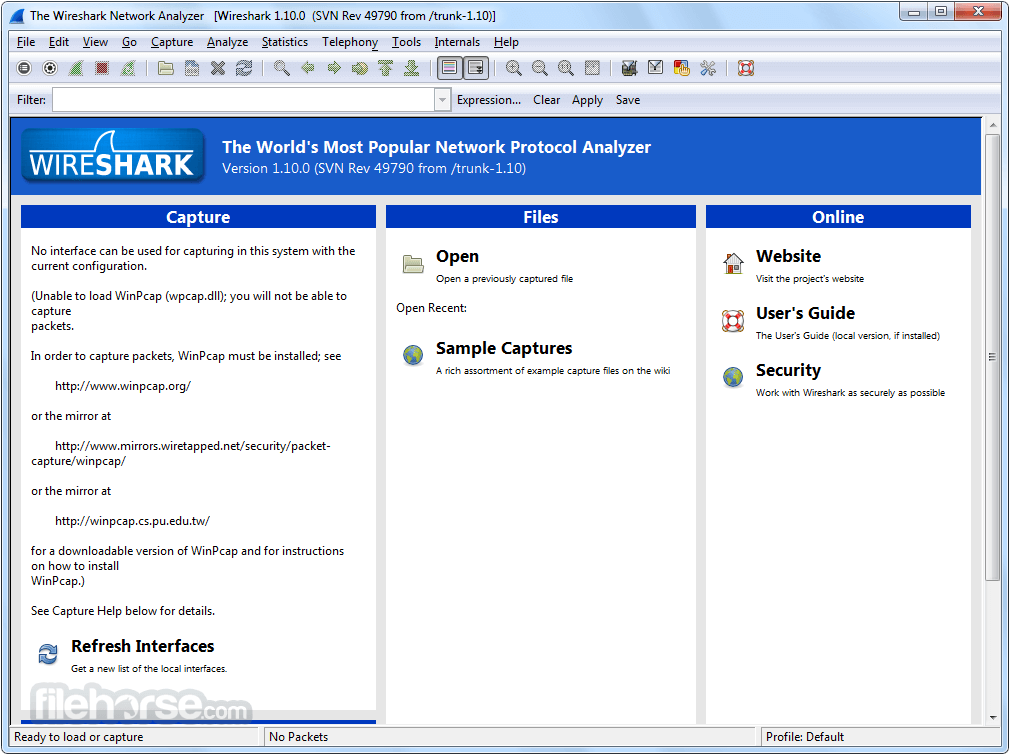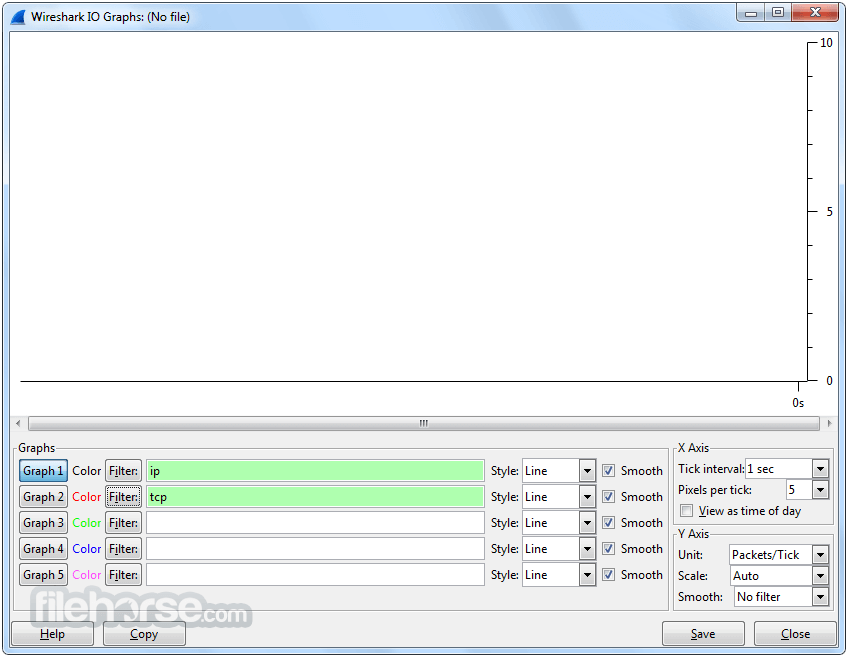-
Latest Version
-
Operating System
Windows XP64 / Vista64 / Windows 7 64
-
User Rating
Click to vote -
Author / Product
-
Filename
wireshark-win64-1.6.7.exe
-
MD5 Checksum
5817d5abcf999d153f7335d321b3ed5a
Sometimes latest versions of the software can cause issues when installed on older devices or devices running an older version of the operating system.
Software makers usually fix these issues but it can take them some time. What you can do in the meantime is to download and install an older version of Wireshark 1.6.7 (64-bit).
For those interested in downloading the most recent release of Wireshark (64-bit) or reading our review, simply click here.
All old versions distributed on our website are completely virus-free and available for download at no cost.
We would love to hear from you
If you have any questions or ideas that you want to share with us - head over to our Contact page and let us know. We value your feedback!
What's new in this version:
The following bugs have been fixed:
- Wireshark could crash while reading SSL decryption keys on 64-bit Windows.
- Malformed Packets H263-1996 (RFC2190). (Bug 6996)
- Wireshark could crash while trying to open an rpcap: URL. (Bug 6922)
Updated Protocol Support:
- H.263
Getting Wireshark:
- Wireshark source code and installation packages are available from http://www.wireshark.org/download.html.
Vendor-supplied Packages:
- Most Linux and Unix vendors supply their own Wireshark packages. You can usually install or upgrade Wireshark using the package management system specific to that platform. A list of third-party packages can be found on the download page on the Wireshark web site.
File Locations:
- Wireshark and TShark look in several different locations for preference files, plugins, SNMP MIBS, and RADIUS dictionaries. These locations vary from platform to platform. You can use About→Folders to find the default locations on your system.
 OperaOpera 125.0 Build 5729.49 (64-bit)
OperaOpera 125.0 Build 5729.49 (64-bit) MalwarebytesMalwarebytes Premium 5.4.5
MalwarebytesMalwarebytes Premium 5.4.5 PhotoshopAdobe Photoshop CC 2026 27.1 (64-bit)
PhotoshopAdobe Photoshop CC 2026 27.1 (64-bit) BlueStacksBlueStacks 10.42.153.1001
BlueStacksBlueStacks 10.42.153.1001 OKXOKX - Buy Bitcoin or Ethereum
OKXOKX - Buy Bitcoin or Ethereum Premiere ProAdobe Premiere Pro CC 2025 25.6.3
Premiere ProAdobe Premiere Pro CC 2025 25.6.3 PC RepairPC Repair Tool 2025
PC RepairPC Repair Tool 2025 Hero WarsHero Wars - Online Action Game
Hero WarsHero Wars - Online Action Game TradingViewTradingView - Trusted by 60 Million Traders
TradingViewTradingView - Trusted by 60 Million Traders Edraw AIEdraw AI - AI-Powered Visual Collaboration
Edraw AIEdraw AI - AI-Powered Visual Collaboration










Comments and User Reviews